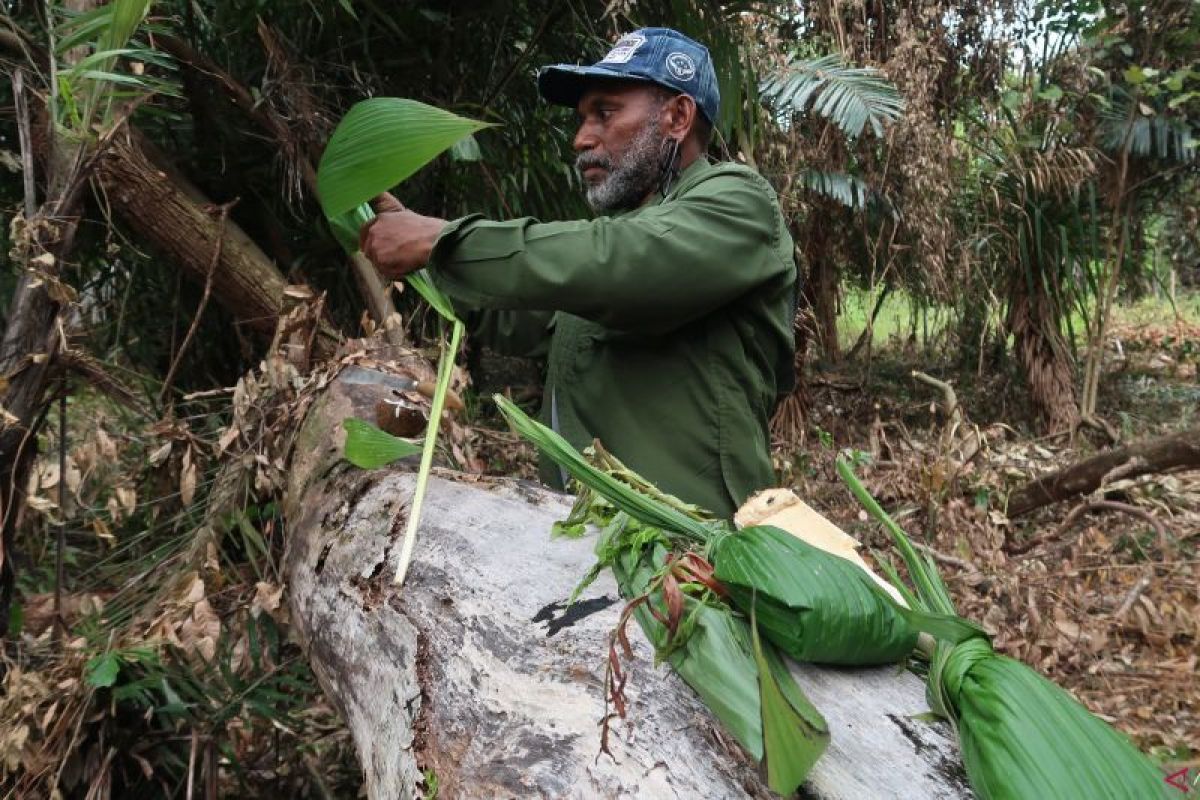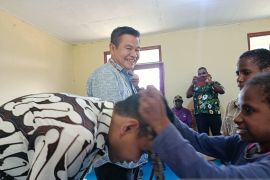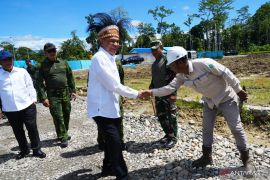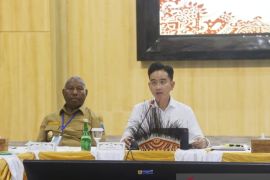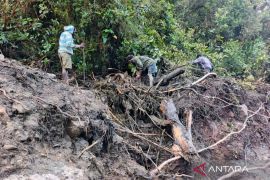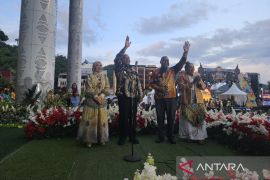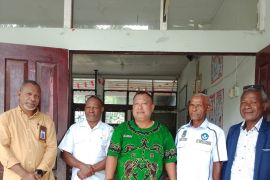“I am dreaming of making forests natural markets for the people of Papua. Markets that offer all necessities free of charge. I also hope that a broader population will know about Papua’s natural riches and cuisine in an authentic way,” according to the chef, who is called Chato.
The combination of PLN’s electrification efforts and technological innovation, along with Chato’s tenacity in preserving Papuan culture, has enabled Papua to illuminate not only the landscape but also to spotlight its enormous culinary and natural resource potential.
Chef Chato, along with his friend Billy, succeeded in establishing a small food shop that caters to the need of tourists for authentic Papuan dishes, thanks to the electricity supply that has powered up formerly isolated areas. Through the Jungle Chef community that he established, Chato has managed to empower local people.
However, a minority of people in Indonesia have yet to register themselves as customers of PLN’s electricity services, despite electricity having reached their residential locations.
“We still see that 0.26 percent of households are left unelectrified, most of which are located in remote areas,” said Muhadi, an official at the Directorate General of Electricity of the Ministry of Energy and Mineral Resources.
According to data from PLN, as of the third quarter of this year, the national electrification ratio has reached 99.74 percent.
In an effort to achieve total electrification, the government has implemented various measures, including the Electricity Installation Assistance (BPBL) Program.
Muhadi noted that in 2023, the program aims to electrify as many as 125 thousand households, with over one thousand of them being located in the provinces of Southwest Papua and West Papua.
In detail, the BPBL Program for the two provinces aims to provide electricity access for four houses in Maybrat District, 23 houses in Raja Ampat District, 135 houses in Sorong District, 756 houses in South Sorong District, and 169 houses in Sorong City.
Translator: Afut S, Tegar Nurfitra
Editor: Anton Santoso
Copyright © ANTARA 2023
